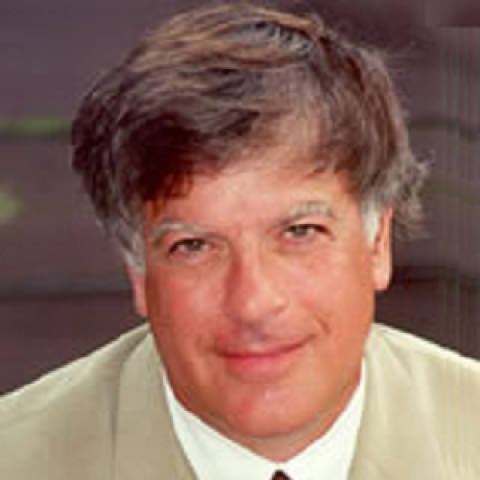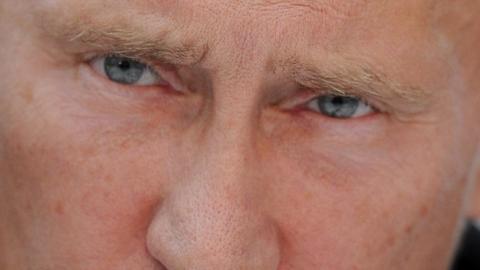On Thursday, a British inquiry into the polonium poisoning death of former Russian agent Alexander Litvinenko in 2006 implicated Russian President Vladimir Putin in the murder. The announcement was the first step toward justice not just for Litvinenko but for all of the victims of Russian state terror.
The evidence that Litvinenko was killed by the Russian regime was overwhelming from the beginning. But the inquiry’s conclusion that Mr. Putin “probably” approved the murder beforehand is the first instance of an official body connecting Mr. Putin personally to the murder of a member of the Russian opposition. The finding was made possible because the crime was committed not in Russia but in England, and it was the British authorities not the Russians who investigated.
It is now imperative not only for the West but for the future of Russia that the Litvinenko inquiry set a precedent for the objective international review of the cases of political terrorism in Russia. These include the bloody sieges at Moscow’s Dubrovka theater in 2002 and at a school in Beslan in 2004, the assassinations of journalists and opposition leaders and, above all, the deadly 1999 apartment bombings that helped bring Mr. Putin to power.
In the Litvinenko case, the alleged assassins, Andrei Lugovoi and Dmitry Kovtun, were accused by the British inquiry of slipping polonium-210 into Litvinenko’s tea. A radioactive trail was left all over London. Traces of polonium were found in Mr. Lugovoi’s hotel room, at a sushi restaurant where Litvinenko dined with the two men, and on the seat occupied by Mr. Lugovoi on a British Airlines flight from Moscow to London.
British prosecutors wanted to bring a case against Messrs. Lugovoi and Kovtun after the murder, but that proved impossible because of Russian obstruction. When Britain asked to interview Mr. Lugovoi, a former KGB bodyguard, and Mr. Kovtun, a former Soviet army officer, the Kremlin said it was conducting its own investigation. Six months after Litvinenko’s death, the British prosecutor requested Mr. Lugovoi’s extradition. Mr. Putin refused though Russia had signed the Council of Europe Extradition Convention in 2001. In December 2007, Mr. Lugovoi was elected to the State Duma, or lower house of parliament, giving him immunity from prosecution.
The Litvinenko murder was a dramatic example of the Russian regime’s criminal methods, but it was far from unique. Provocation and political assassinations are the hallmark of post-Soviet Russia and led to the Putin dictatorship.
The first unexamined episode was the massacre at the Ostankino television tower in 1993, in the wake of Boris Yeltsin’s illegal order abolishing the Russian parliament. Thousands of unarmed pro-parliament protesters near the tower were fired on with automatic weapons, leaving 46 dead and 124 wounded. Yeltsin then persuaded the army to attack the parliament building and, in the wake of military victory, introduced a super-presidency with near-dictatorial powers.
With no check on executive power, Yeltsin launched the first Chechen war in 1994 and facilitated the widespread corruption that drove Russia into poverty and hardship.
The second unexamined episode was the series of Russian apartment bombings in three cities in 1999, claiming more than 300 lives. The bombings were used to justify a second Chechen war, directed by Mr. Putin, who was then prime minister, and helped him win the presidency in 2000. His first official act was to pardon Yeltsin for any crimes committed in office. An unexploded bomb was discovered in the basement of a building in Ryazan. The persons who planted it turned out to be not Chechen terrorists but agents of Russia’s intelligence service, the FSB.
Four Russian citizens who tried to investigate the apartment bombings were murdered. These were the Duma deputies Sergei Yushenkov and Yuri Shchekochikhin, investigative reporter Anna Politkovskaya, and Alexander Litvinenko.
Popular support for the second Chechen war was reinforced with the help of two terrorist acts, the sieges of the Dubrovka theater and the Beslan school, in which there was evidence that the regime had a role. In each case, a thousand or more hostages were seized by Chechen terrorists, Mr. Putin refused to negotiate and acted instead to kill the terrorists as well as hundreds of hostages. The leaders of the attacks had recently been released from Russian jails, and authorities had ignored credible warnings of an impending terrorist strike.
In the aftermath of the Beslan school massacre, in which 318 hostages, including 186 children, were killed, Mr. Putin announced the abolition of the popular election of governors, a direct violation of the Russian Constitution.
As Mr. Putin consolidated dictatorial power, he faced a weak but influential opposition led by Boris Nemtsov, a former deputy prime minister. On Feb. 27, 2015, Nemtsov was murdered on the Moskvoretsky Bridge opposite the Kremlin, a location under around-the-clock surveillance by Mr. Putin’s personal guard. The triggermen were arrested but not the mastermind, and the State Duma has refused to conduct an investigation.
This is why the Litvinenko inquiry’s outcome is so important. The truth about Russia’s recent history is knowable, but not through the controlled institutions of the Russian state. Examining the many crimes of the Yeltsin and Putin eras is therefore an international obligation. Such an effort may spare the West from uninformed policy but its real value is the help it can give to the Russian people, who cannot begin to build a better future without freeing themselves from a carapace of lies.



















